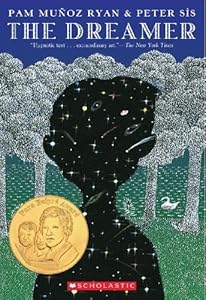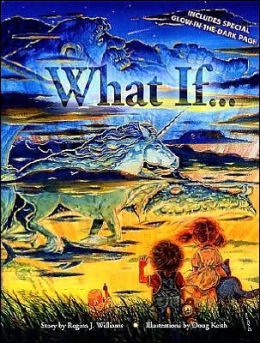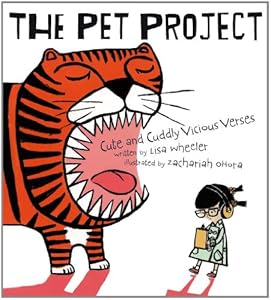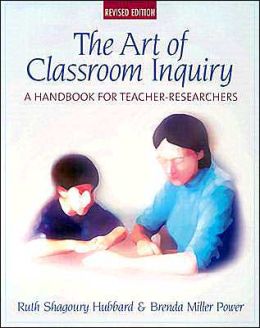Why?
I wonder...
Good conversations, most creative and timely inventions, as well as important research and investigations that will inform our lives and work, often begin with questions.
Most wonderful new ideas arise out of wondering.
We naturally are wondering, question-oriented creatures.
So much so that every several years there is a "question " book on the best-sellers list.
These books are marketed as conversation starters, ways to get to know people you know better, potential interview questions, or party games.
 |
| The Book of Questions |
What is the role of questioning in our learning and teaching, in our growing and exploring?
Question is related to quest.
As we question, we are seeking--we are on a journey.
We wander in physicality and solidity.
We wonder in mentality and spirituality .
| 4000 Questions |
We come to exemplify Marcel Proust's view:
The real voyage of discovery consists not in seeking new landscapes but in having new eyes.
Questions help us to envision new possibilities, new opportunities, and new journeys. They enable us to see our lives, our relationships, our experiences, and interactions in new and unexpected ways.
Pablo Neruda wrote a book of poems composed completely of questions. There are not necessarily answers to the questions posed, but rather they serve as meditations on what we know and what is beyond our known. They point us to more questions and wonderings.
Poem XXIV begins:
Is 4 the same 4 for everybody?Are all sevens equal?
When a convict ponders the light is it the same light that shines on you?
For the diseased, what color do you think April is?
Today I discovered a delightful companion book to Neruda's book-- Talking to Neruda's Questions by M.T.C. Cronin -- comprised of poems that each respond directly to Neruda's 74 poems, line by line, question by question.
Pam Munoz Ryan honors the role of questions in the the life of Pablo Neruda in her biography The Dreamer. Pages of poetic questions are interspersed throughout the narrative of Naphtali, as Neruda was called.
Which is sharper? The hatchet that cuts down dream? Or the scythe that clears a path for another?We all wonder lots of stuff about real and imaginary people.
We all have questions that have plagued us always.
 Amy Krouse Rosenthal offers us stories, short poems, lists, and other wonderings that will delight all ages in The Wonder Book.
Amy Krouse Rosenthal offers us stories, short poems, lists, and other wonderings that will delight all ages in The Wonder Book.I wonder if laughing hyenas ever cry...
I wonder why it's called getting "dressed" when you put on your pants...
How many of us have children who delayed their bedtime with questions and more questions? How many of us used that same tactic ourselves?
The little boy in Regina J. Williams's What If... effectively uses his imagination to wonder a bit before he must turn off his light.
Not only can we reach beyond our wildest dreams with wonderings and questions, but we can also dig deeper into the real world.
We can begin scientific investigations, seek historic answers, and wonder through the newspaper and the events of the day.
 In Questions,Questions, Marcus Pfister raises real world questions in charming couplets that invite us to wonder more.
In Questions,Questions, Marcus Pfister raises real world questions in charming couplets that invite us to wonder more.
And what if...People everywhere would dance and sing and be happy.And there was only sunshine and love so all the scary monsters would go away forever...
Not only can we reach beyond our wildest dreams with wonderings and questions, but we can also dig deeper into the real world.
We can begin scientific investigations, seek historic answers, and wonder through the newspaper and the events of the day.
Once real-world questions are raised, we can then hypothesize investigate, gather evidence, raise new questions, explore and learn.
Lisa Wheeler introduces us to a little girl who wants a pet in The Pet Project. Her parents encourage her to research, formulate a query, observe......and then they would talk again.
In humorous poems we accompany the little girl as she conducts a full research project, investigating animal after animal, and comes to a disappointing, yet conclusive end... a new direction to research.
 Richard Van Camp is from the Dogrib nation, which uses dogs instead of horses. He has always wondered about horses and poses this question that is also the title of his book: What's the most beautiful thing you know about horses?
Richard Van Camp is from the Dogrib nation, which uses dogs instead of horses. He has always wondered about horses and poses this question that is also the title of his book: What's the most beautiful thing you know about horses?
The rich reflective answers he gathers enrich our understanding of horses, but also provide us with a new way to see the world and our selves.
What do you want to know?
Where are you wondering about?
What are your "what-ifs..."?
Who will you ask?
Lisa Wheeler introduces us to a little girl who wants a pet in The Pet Project. Her parents encourage her to research, formulate a query, observe......and then they would talk again.
In humorous poems we accompany the little girl as she conducts a full research project, investigating animal after animal, and comes to a disappointing, yet conclusive end... a new direction to research.
 Richard Van Camp is from the Dogrib nation, which uses dogs instead of horses. He has always wondered about horses and poses this question that is also the title of his book: What's the most beautiful thing you know about horses?
Richard Van Camp is from the Dogrib nation, which uses dogs instead of horses. He has always wondered about horses and poses this question that is also the title of his book: What's the most beautiful thing you know about horses?The rich reflective answers he gathers enrich our understanding of horses, but also provide us with a new way to see the world and our selves.
As a teacher, wondering, questioning and following the what ifs always leads to better thinking and learning and teaching...and more questions.
For more than a year I was part of a teacher-inquiry group comprised of Columbus Area Writing Project teachers. We studied both traditional research and teacher/action research, as well as conducting our own research.
Several of our readings emphasized the important role of wondering. In our main text,The Art of Classroom Inquiry:A Handbook for Teacher-Researchers, Hubbard and Power tell us:
For more than a year I was part of a teacher-inquiry group comprised of Columbus Area Writing Project teachers. We studied both traditional research and teacher/action research, as well as conducting our own research.
Several of our readings emphasized the important role of wondering. In our main text,The Art of Classroom Inquiry:A Handbook for Teacher-Researchers, Hubbard and Power tell us:
Nothing shapes our research as much as the questions we ask… the questions come from the real-world observations and dilemmas.Teachers-researchers pay attention to the “what-ifs” that occur...
What do you want to know?
Where are you wondering about?
What are your "what-ifs..."?
Who will you ask?
Today's Deeper Writing Possibilities
List questions and wonderings and what ifs about your life, work, relationships, events, experiences, observations, concerns or problems ?
Can you create a poem using several questions like those of Pablo Neruda?
Try creating a humorous puzzle, short story, or other piece based on your wonderings.
What are your real-world questions? How can you investigate and research to gather answers?
Write a personal narrative or essay about something about which you have always wondered.
Can you create a poem using several questions like those of Pablo Neruda?
Try creating a humorous puzzle, short story, or other piece based on your wonderings.
What are your real-world questions? How can you investigate and research to gather answers?
Write a personal narrative or essay about something about which you have always wondered.






Robin, I always appreciate your wealth of knowledge when it comes to book and connections between them. As I read through your post, I began to formulate how I might use some of these books in my classroom as we talk about asking questions, not only in our reading and writing, but throughout our day.
ReplyDeleteJulie, This went in a totally different direction than I had originally planned. This started out to be a piece about discovering questions for teacher inquiry. I began thinking about it as the teachers in the Summer Institute were beginning to identify big areas of interest and individual questions in their inquiry groups. I always write myself to "somewhere else".
ReplyDeleteLet me know if you develop some unique ways of working with these books and with questioning.
Thanks for all your hard work in the advanced summer institute. It sounds like it was a phenomenal learning experience for all invovled.
Our inquiry group changed so much about me as a professional. It also shifted my approach with my students. Bookmarking your post to remind me the importance of and power in honoring my students' wonderings -- that's the ultimate in choice, right? How and when do people in the "real world" learn -- really learn, in a way that sticks and transfers and transforms? When they investigate the things that make them wonder. I want to inspire my students to wonder. (one of the reasons I love Wonderopolis -- as a resource for us, but also as a source for us to share our wonderings and maybe have them published. Love that they honor student voices!)
ReplyDeleteThank you for sharing this wealth of book titles and your thinking about wondering. I am friends with Gretchen and I can't wait to learn more about your inquiry group.
ReplyDeleteGretchen, thanks for reminding me of Wonderopolis. I probably should have included it as a source in my post!
ReplyDeletehttp://wonderopolis.org/
Thanks for the kind words, Maria. Talk more to Gretchen about the Columbus Area Writing Project and consider applying for the summer institute next summer. We would love for you to be a part of the group.
ReplyDelete